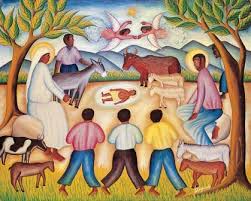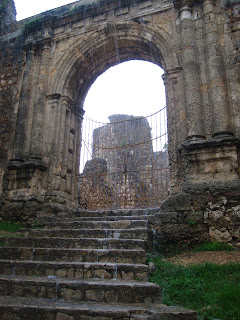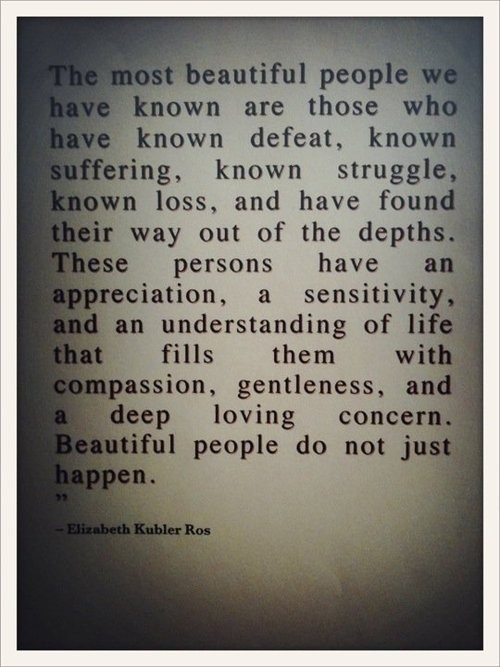 |
| A Haitian Christmas - Here |
Today is Christmas and round the world, people are celebrating the birth of Jesus. Or maybe they are getting together to just drink a lot and share presents. Whatever their reason, a typical Christmas includes family, food, sharing, traditions and general merriment with people you care about.
But there are those of us who spend Christmas away from home, in a place that may be unfamiliar, with people who you have just met. This is my second Christmas of that sort. My second in a row.
Last year, my
first Christmas away from home, was very difficult, because I had just arrived in Haiti, was living alone, and even though there were people around, it felt very lonely and unfamiliar. Also, Haiti was still in a time of shock - Christmas, a normally festive time of year, was quiet and somber. I decided at the end of last year that I did not want to have Christmas out of the country, away from people I love again.
But here I am, second year in a row, away from home, in an apartment by myself. But this year is very different. First of all, Haiti has its celebration back. There was a Christmas market in Place St. Pierre; fairy lights are on houses and stretched across the roads; Christmas eve resumed its normal night of craziness. But secondly, I learned a lot in 2011 (post on that likely to come), and one of the things I learned more about was how to adjust.
Just as when you get married, have children, you start forming your own family traditions outside of what you grew up with, so it is when you are away from home in a foreign land. This year I learned to adjust to that displacement, and to form my own traditions, as the grown-up woman I am.
 |
| Check out those choices! |
On Christmas eve, I made an amazing meal for colleagues who were here as well, and we ended the night by dancing - as you do... But I woke up this morning with the intention to walk to church, worship with others, come home and relax and skype with my family, intermittent with watching Christmas movies (current choice: Home Alone!). Tonight, I will sleep early, and I will love it. Because Christmas does not always have to be about the hubub of merry-making. It can instead be about rest, relaxation, getting to spend quality time with friends and family, even if it is over the internet, and most importantly, celebrating the promise of Christ.
I plan to keep this tradition whenever I spend time in a foreign land away from family - eat lots of food, spend time with the people around, but of course, make sure to make plenty of time for conversations with people back home.
Just because one is alone does not mean one is lonely.
To all my friends and family spread throughout the world, I send you love and cheer on this Christmas day. I miss you and cannot wait for the next day I see you.




















 Haiti is teaching me a lot. It is teaching me a lot about work; it is teaching me a lot about humanitarianism. Most of all though, it is teaching me about friendship and relationships and what it means to find people who you are able to be yourself with - support you, frustrate you, encourage you, and most of all who love you unconditionally. People like you are not easy to find.
Haiti is teaching me a lot. It is teaching me a lot about work; it is teaching me a lot about humanitarianism. Most of all though, it is teaching me about friendship and relationships and what it means to find people who you are able to be yourself with - support you, frustrate you, encourage you, and most of all who love you unconditionally. People like you are not easy to find.  You are always in my heart. And until I see you again, know that I love you. And that in you, I find strength. In you, I find courage. In you, I remember how to love.
You are always in my heart. And until I see you again, know that I love you. And that in you, I find strength. In you, I find courage. In you, I remember how to love.